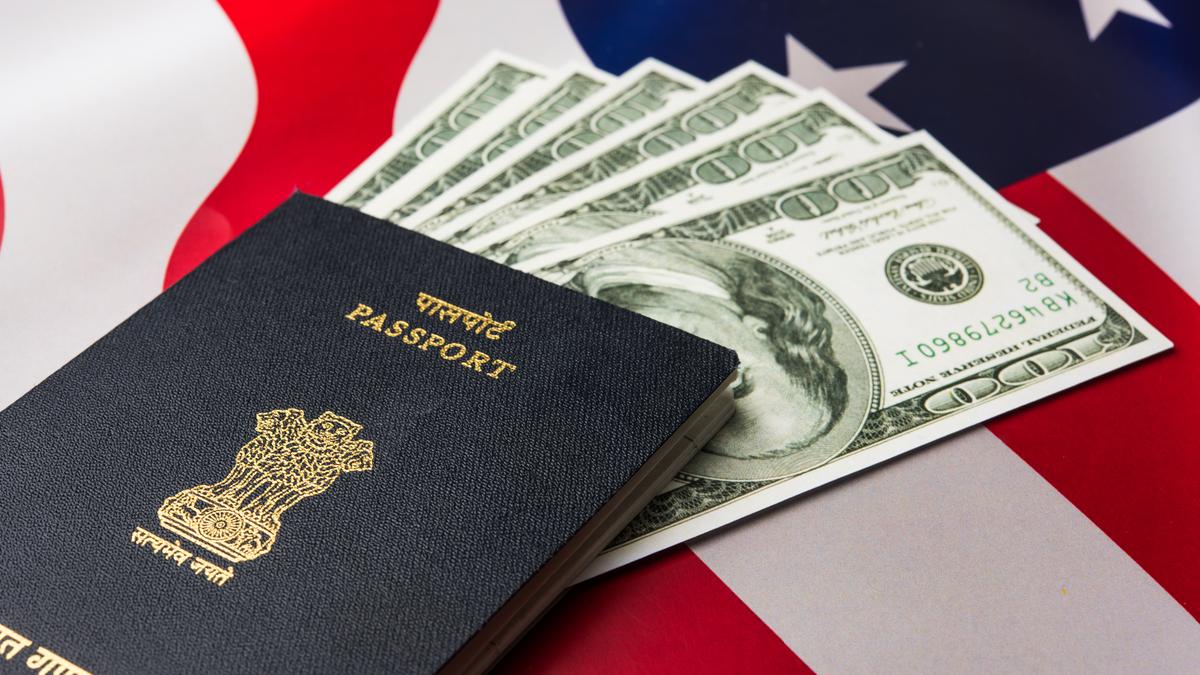On September 19, 2025, U.S. President Donald Trump signed an executive order, raising the H-1B visa fee to $100,000. Many fear that this will disproportionately impact Indian workers, especially those with lower median salaries. Although the White House has clarified that the fee applies only to new applicants and not those up for renewal or already in the country, there are concerns, especially against the backdrop of immigration control and protectionism. Is the American Dream dead for Indians? Arjun Appadurai and Ajay Srivastava discuss this question in a conversation moderated by Saptaparno Ghosh. Edited excerpts:
The hike in the H-1B visa fees has led to some panic in India. Would you say the American Dream is now dead?
Data | H-1B’s new $100k visa fee: Why young Indian women are most at risk
Ajay Srivastava : About 3.4 lakh Indian students are in the U.S., enrolled in either STEM (Science, Technology, Engineering, and Mathematics) or management courses. They pay upward of $2,00,000, having taken loans from banks or relatives, for one and half to two years of education. If they do not get jobs, the dream comes down in scope gradually over the years. The hike in visa fee makes it almost impossible for anyone to be hired, except top STEM graduates. No U.S. company is going to take a risk given the vitiated political environment. The curtailing of the dream would mean that both come out as losers. The U.S. earns $15 billion as tuition fee from Indian students and more than $10 billion in living expenses.
Some say that the H1-B regime is being exploited to gain residency. How would you respond to that?
Arjun Appadurai: The U.S. is unique. It is a society built on immigration. So, to suddenly say that we must control everything is not realistic, not just in today’s world but at any given time. More importantly, it is a global pattern that when things are not right internally or when somebody wants to make a claim to power, the easiest way for them appears to be to blame new arrivals.
The tougher question to ask is this: why has a society that is producing extraordinary amounts of wealth been unable to provide a simple social canopy, social security, health, or jobs? That is the big scandal that nobody wants to talk about excluding a minority in the U.S. That is what is wrong with the [anti-immigration] assertion.
Data | New $100k H1B visa fee could threaten Indian students’ American dream
You see, whatever H1-B visa-holders do, whether from India or other parts of the world, by and large is nothing illegal or criminal. So, even if they come to the U.S. and stay for six years and then obtain a green card, it is through law and established procedures. Additionally, what must be noted is that the beneficiaries are in a legitimate way pursuing and strengthening research in American universities, making these institutions a global force. Thereafter, some enter the global economy. It is a win-win situation. What is the point of this sudden restriction in a land built on the idea of immigration?
The U.S. has invested heavily in AI recently. Indian workers are preferred for their skills, knowledge, and sustainable wages. In that light, would the U.S. be able to sustain itself?
Arjun Appadurai: AI is an extremely new space. It is my belief that the large amount of the investment in the realm would go to the higher end. Several studies have also indicated that winning the AI race would depend on a small number of extremely high paid people. Some studies have also pointed out that there are 100 people in the world who can make a breakthrough in AI, and the tech giants would be chasing them. If there were hundreds of H-1B visa-holders who could come and revolutionise AI for you, then it will be a cheaper market.
Also read | How Trump’s H-1B fee threatens India’s IT firms and Big Tech business models
The more poignant question is not just about AI but about larger digital technology. How can the U.S. substitute for quantity, reliability, and quality? There will be a lag because once you start squeezing supply from places such as India, your educational system must start pumping up people from below. That is not impossible for the U.S.. They will have to change policy, but that won’t happen overnight.
Is the H-1B visa issue an isolated matter, or does it form part of a broader geopolitical strategy involving pressure tactics?
H-1B visa | The Hindu’s coverage on U.S. work immigration visa fee hike and its impact
Arjun Appadurai: The H1-B is not that important — either in India or the U.S. So who made it important? It is obviously a mixture of politics, politicians, some over-reaction, and the reactions of certain sectors that are worried.
So, what should we expect from here?
Ajay Srivastava: There is a little-known clause in the directive which says the fee would be waived if the U.S. Commerce Secretary is satisfied that the prospect entrants are being allowed for a project of national importance. I would suggest Indian professionals make their name in their respective fields. They will then be noticed and be allowed to enter the U.S. without the visa fee.
Ajay Srivastava, Founder, India-based Global Trade Research Initiative; Arjun Appadurai, Socio-cultural anthropologist and Professor Emeritus for Media, Culture and Communication, New York University
